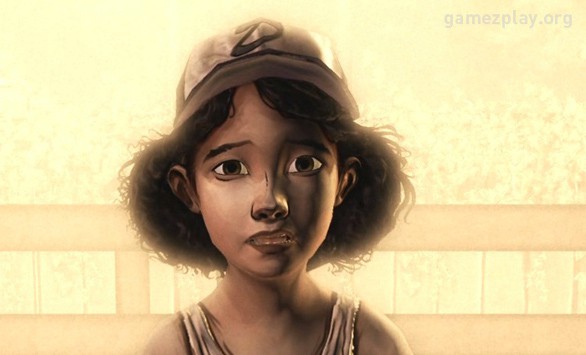Last time, I mused a bit on the concept of linearity versus openness in gaming. Today, I’d like to continue that line of thought, with a look at narrative paths in game design. See, I was reading an article the other day – an interview with TellTale Games – where it was revealed that they almost cut Clementine from The Walking Dead. If you’re among those who’ve played the game, I’m sure you’ll agree that it would have been a catastrophic choice which would have resulted in one of the best features of the game – one of the game’s sole driving factors – being absent.
It’s actually not going too far to say that The Walking Dead wouldn’t have been anywhere near as good without her. It simply wouldn’t have been the same – there really would have been no emotional investiture. None of the choices would have carried the same weight, none of the consequences would have had the same impact. Without Clementine there to rely on Lee – on the player – for safety and protection,without her to look up to him; his choices would have seemed more about self-interest than anything.
For a game that carries with it such heavy undertones of redemption, that would have been tragic.

But we’re getting a bit off track. One of the main topics of this interview was the inherent danger in giving a player too many choices – in becoming obsessed with having an ‘open’ narrative. As I discussed last time, a truly open and free-choice game is virtually impossible. The medium simply doesn’t allow for it. As a result, there needs to be a limit. There needs to be a narrative guardrail, of sorts. If you don’t limit things, you eventually reach a point where you’ve become so obsessed with branches – so consumed with the idea of player agency – that you’ve diluted and sacrificed the integrity of your story.
Telltale creative lead Jake Rodkin basically said as much in the interview.
“I think with the idea of an interactive story it?s really, really easy to get fixated on branching the narrative just for the sake of having more branches,” explained Rodkin.” You can spend forever coming up with cool ways to branch a story and lose sight of what makes the choices that you?re branching have resonance in the first place, which is the context that?s built up before the choice is made?the reason that a player is actually making a choice. It turns out that you can branch your narrative all you want, and that doesn?t make your narrative any more meaningful if the act of actually making those choices have no meaning.?
That’s what Clementine added to The Walking Dead more than anything: she gave the choices made by the player actual meaning. They weren’t just a series of arbitrary decisions forced on Lee, nor were they simply added forks in a plot-driven railroad. The addition of a father-daughter dynamic to Lee’s story caused the player to actually feel a connection to the narrative. They weren’t simply tromping along the road, not bothering to look at the scenery and moving from one choice to the next- they were actually thinking about how each decision would impact Clementine, and whether or not she’d be harmed.
In short, the players were actually invested in securing Clementine’s well-being.

That, I think, is what a lot of narratives lack these days, just as its what’s lacking in the vast majority of moral choice systems: meaning and emotional investment. You can add all the little decisions you want, you can add a flashy karma meter and have NPCs respond to every move a character makes, but at the end of the day, if the player doesn’t give a damn about their choices, none of this matters.
If you just present a black-and-white choice to them and simply inform them that one path is good; the other, without explaining why – without making them care – it doesn’t matter how deep and driven your story is, it doesn’t matter how many choices you give your players, or how many dilemmas they have to soldier through. You can give them a million, billion choices, and they still aren’t likely to pay your story much mind. If, however, you do something to make them care – if you get the emotionally invested – even a simple fork in the road can be one of the most memorable, meaningful choices they’ll ever make.

Of course, you’ll also have to show them their choices actually matter, too. We’ll discuss that next week. I’ll see you fine folks then.

